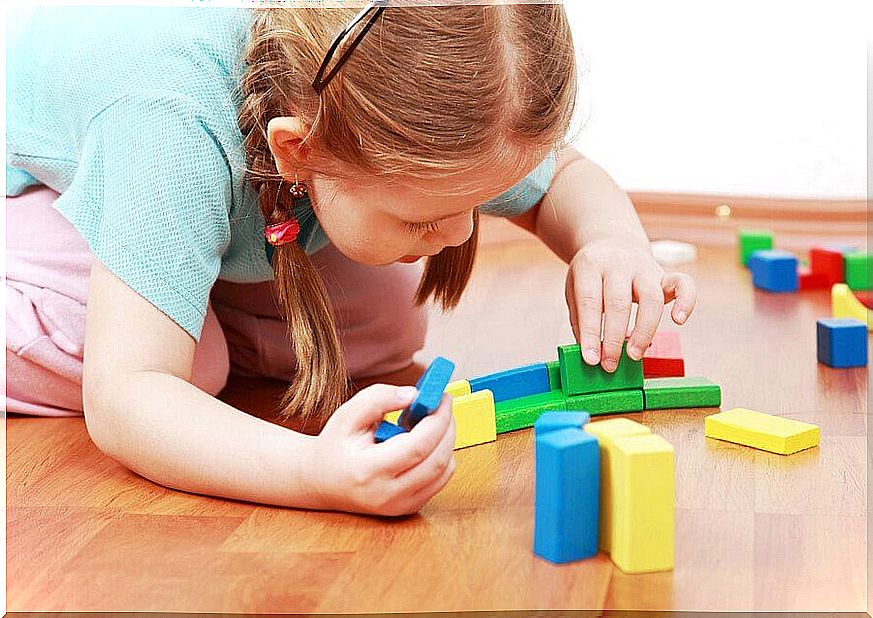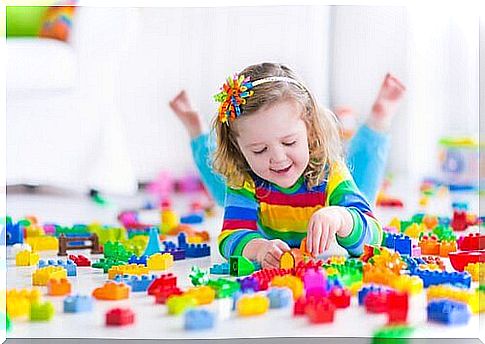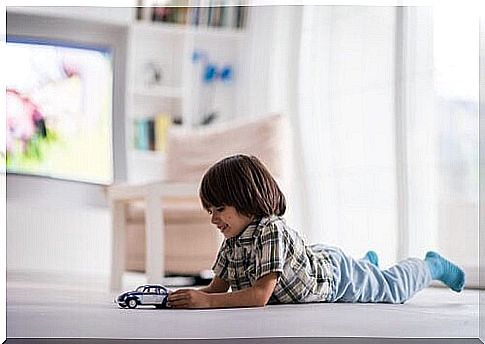Why Is It Good For Children To Learn To Play On Their Own?

One of the activities that should be encouraged at home is for children to learn to play on their own. That’s because it makes them know their skills better and strengthens their skills.
The act of playing alone or in an undirected way is a fundamental tool for the child’s cognitive development, as this practice increases their independence and autonomy.
Encouraging the child to do this activity alone allows them to make their own decisions without fear of making mistakes and to explore new worlds through their imagination and fantasies.
Many children don’t like to play alone because they don’t feel comfortable and, therefore, they often look for the company of their parents. This is not good in the long run, as she will grow too dependent.
On the other hand, playing alone is not beneficial either. This is because it limits interaction with other children and, thus, the process of adapting to society. There must always be a balance.
On the one hand it is good for children to learn to play on their own as it is beneficial on a personal level. On the other hand, playing in a group helps to relate to others and develop language.
Benefits of children learning to play on their own
The fact that children learn to play on their own brings multiple benefits, such as:
Independence
They learn to control their world, are autonomous and assimilate new ways of relating. In the beginning they will probably ask for help, but in the end they get used to trying to work things out for themselves.
decision making
They start doing things for themselves. With this, they learn to make mistakes and look for possible solutions. In this way, your security and confidence increase.
Explore creativity and fantasy
The little one who plays alone has fun exploring his inner world, creating characters, environments and situations that take him to magical places. Therefore, your imagination develops more quickly by materializing dreams and ideas as you wish.

try the undirected play
When a child plays alone, he does and says things he wouldn’t do in front of an adult. This activity can provide the ideal space to learn what is good and what is not.
Of course, it’s great to offer freedom and space, but never completely neglect what your child does. This creates the ideal opportunity to correct and educate values.
Playing alone and in a group complement each other. That’s because both are necessary for a child’s cognitive and emotional development.
How to help children learn to play on their own?
It’s better to start little by little. It is good for parents to play with their children at intervals of time and then leave them alone for a little longer to get used to.
Building toys or puzzles are ideal for the child to get used to. Playing together with the child in the beginning will make him gain confidence. Afterwards, she will continue to play alone without any problems.
Leaving your child alone to take a call or answer the bell are ideal times to leave them alone for a few minutes. Telling her to keep playing until you get back helps her independence little by little.
Remember that your absence should not be longer than five minutes. The child may feel abandoned and this is obviously not the intention. From the age of 2 or 3, children start to enjoy playing alone, as they explore the magical world they create and have fun.
When children grow up, it ‘s necessary to control the time of electronic games, whether it’s the video game, the computer or the tablet. This type of game creates a lot of dependency. Therefore, it is advisable to establish a specific time for its use.
For both children and parents, finding a balance between playing alone and in groups is beneficial. Wanting children to get into the habit of playing alone should not prevent them from having fun with other people too.

Recommendations for children to learn to play on their own
- The first step is to provide a place for the child to play safely alone.
- It is important that children have educational toys that are compatible with their age. In this way, it activates and encourages your cognitive understanding.
- Although the game is alone, it is advisable not to lose sight of the child. It is unknown if she might need help at any time.
- It is best to alternate between playing alone and in groups. Thus, no dependency or preference is created for any of them.
- Children learn by imitation. Therefore, it is good for parents to engage in games with them.
Like any process, teaching children to learn to play on their own requires a lot of patience and a little discipline.
It’s great to want to accompany your kids at all stages, but it’s also important to understand that they need space to develop their skills. The act of playing alone will become an ally to form a child with autonomy, security and imagination.









